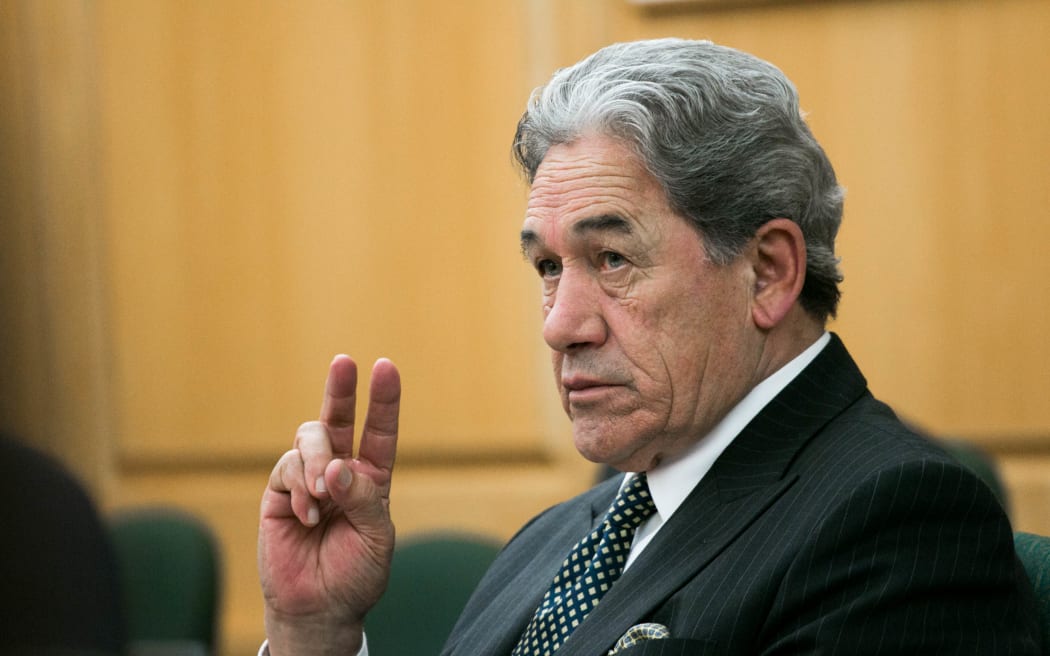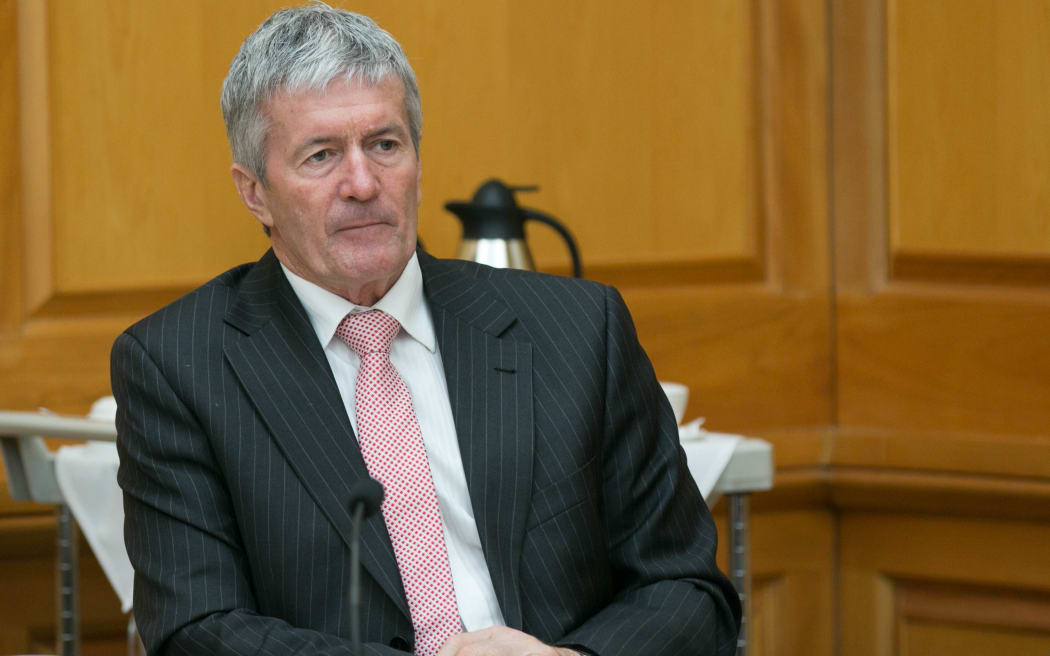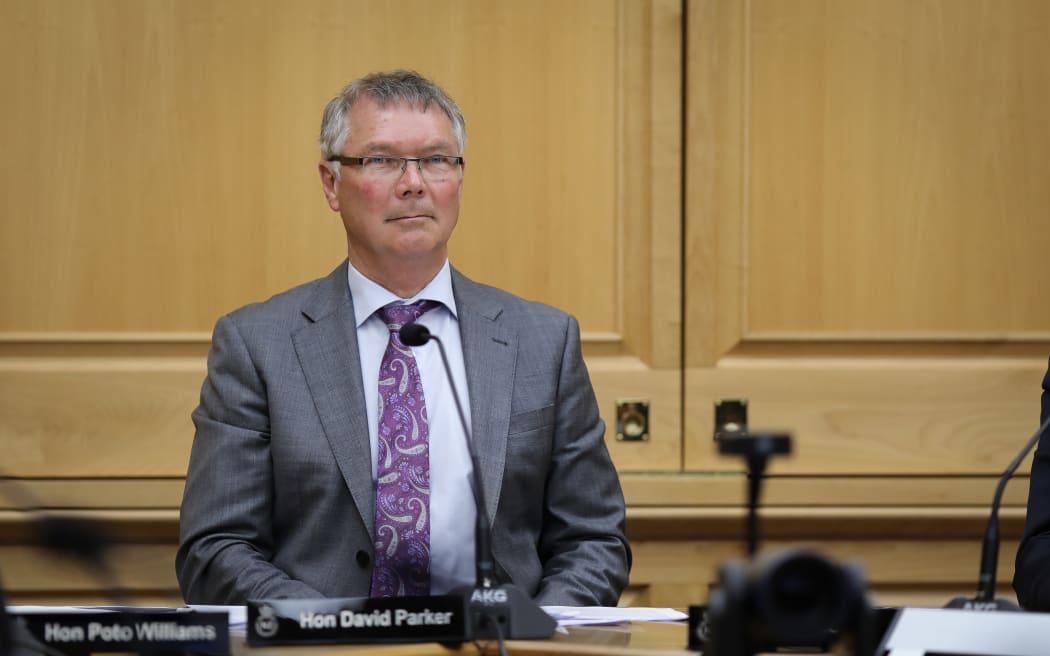The Minister of Foreign Affairs, Winston Peters, has told a select committee that New Zealand’s diplomatic presence overseas must grow, despite government plans to reduce spending in his ministry.
The Foreign Affairs, Defence and Trade select committee has been undertaking its annual review of the Ministry of Foreign Affairs and Trade (MFAT), with the minister appearing to answer questions. Hearings like these are one of the ways that Parliament attempts to supervise the work of the government that it funds.

Winston Peters in Committee Photo: VNP / Phil Smith
As he did in his previous two stints as Foreign Minister (2005-2008 and 2017-2020), Peters continues to emphasise the importance of engaging more with the international community, for the sake of New Zealand’s long-term security. This includes increasing our representative presence in other countries, particularly where trade opportunities beckon, but also giving a level of Overseas Development Aid that is commensurate with being an OECD (Organisation for Economic Co-operation and Development) member country.
But Peters again warned that New Zealand cannot afford to rest on its reputation of punching above its weight internationally, particularly in a world where geopolitical dynamics have changed dramatically.
“We’ve got a massive task on our hands. Not only do we have to beef up our engagement and our collectiveness to countries that share our views and share our values, but we’ve also got to beef up our trade big time. We’ve got to put more people on the ground,” Peters said, adding that New Zealand stacked up unfavourably in this regard compared to the likes of Singapore, Ireland and Nordic countries.
Expansion v Cuts
Labour MP Damien O’Connor was curious to know how Peters could expand New Zealand’s diplomatic footprint while his ministry - like dozens of other departments - has been asked by the National-led coalition government to cut spending by at least 6.5 percent.
“Of course we can always find economies, but we’ve got to start with firstly understanding that there’s some things you cannot sacrifice. What I’m talking about is anti-inflationary, because it’s not spent inside the New Zealand economy, it’s spent offshore,” Peters replied.
Another senior Labour MP, David Parker, chipped in with questions around New Zealand's level of Overseas Development Aid (ODA), which currently sits at about $1 billion annually (of which 60 percent goes to the Pacific Islands).

Labour MP Damien O'Connor presented Rose Renton's petition to change cannabis law to the house and sits in on the Health Committee to question submitters. Photo: VNP / Phil Smith
"Are you committed to at least maintaining and if possible improving New Zealand’s ODA as a percentage of GDP or GNI [Gross National Income]?" Parker asked.
"The problem with politics is that in 2005 or 2017 I could ask for something and know I was going to get it on day one. Unfortunately in 2023 we had to negotiate, and now I’m relying upon sensible survivorship and commonsense getting us to where we need to go," Peters said.
"But I’m not arguing it from the point of view of favouring a department. It's this country’s long-term future that’' critically dependent upon this. And in that sense, in the terms of aid, it's the Blue Continent [the Pacific] in which we live, which needs our engagement and our help, and it's part of our national security."
Trade and investment rule tweaks
Parker also asked about the government's intentions to tweak trade and investment rules, noting the circumstances that he and Peters together encountered in 2017 when negotiating for New Zealand on entering into the Comprehensive and Progressive Trans-Pacific Partnership (CPTPP).
"The prior government had been going to enter into that agreement without preserving the right of New Zealand to screen for inward investment and residential housing and in forestry properly. And your party [NZ First] and the Labour Party combined to make sure that before CPTPP came into effect those new categories of screening were put into the screening regime.

David Parker in Select Committee Photo: ©VNP / Phil Smith
"Now the current government has said that they are going to loosen some of those screening rules, and in terms of how they do it, will the Ministry of Foreign Affairs and Trade, in order to protect the sanctity of this cross-party consensus that we have around trade and investment, make sure that if they do it they do so in manner that does not remove them from the screening regime, which could be all but impossible to put back in either in CPTPP or other agreements that benefit from most favoured nations clauses on investment including the China Free Trade Agreement?/; Parker asked.
"You may be hearing things publicly, but if they divert from the coalition agreement, then they will not be what's happening," Peters responded.
At this point, the committee chair, National's Tim van de Molen, brought the hearing to an end.
Gaza and Ukraine
Earlier O’Connor asked the minister why the government hadn't responded to the situation in Gaza with the same level of concern that it had to the situation in Ukraine.
“They called it the illegal invasion of Ukraine, because they respected their territories. We haven’t seen the same response in Gaza. I would have that thought the government considered Gaza and the Palestinian territories to be in the same status as Ukraine, and so why haven't we said much there?" O'Connor said.
Peters rejected this, and questioned the equivalence of the two examples. Following up, O'Connor said while the government had expressed concern about Israel’s actions in Gaza, it had still not been for an immediate ceasefire and was still not at the same level of steps that New Zealand had "rightfully" taken on Ukraine.
Peters cited the leader of the UK Labour Party, Keir Starmer, that a ceasefire in Gaza has to be permanent, saying this position was shared by New Zealand's government.
"We want a permanent solution here. Not a temporary ceasefire and then the rearmament and the same conflict breaks out again to the same horror of the world and all of us who want to see a long-term, two-state viable, peaceful solution."

